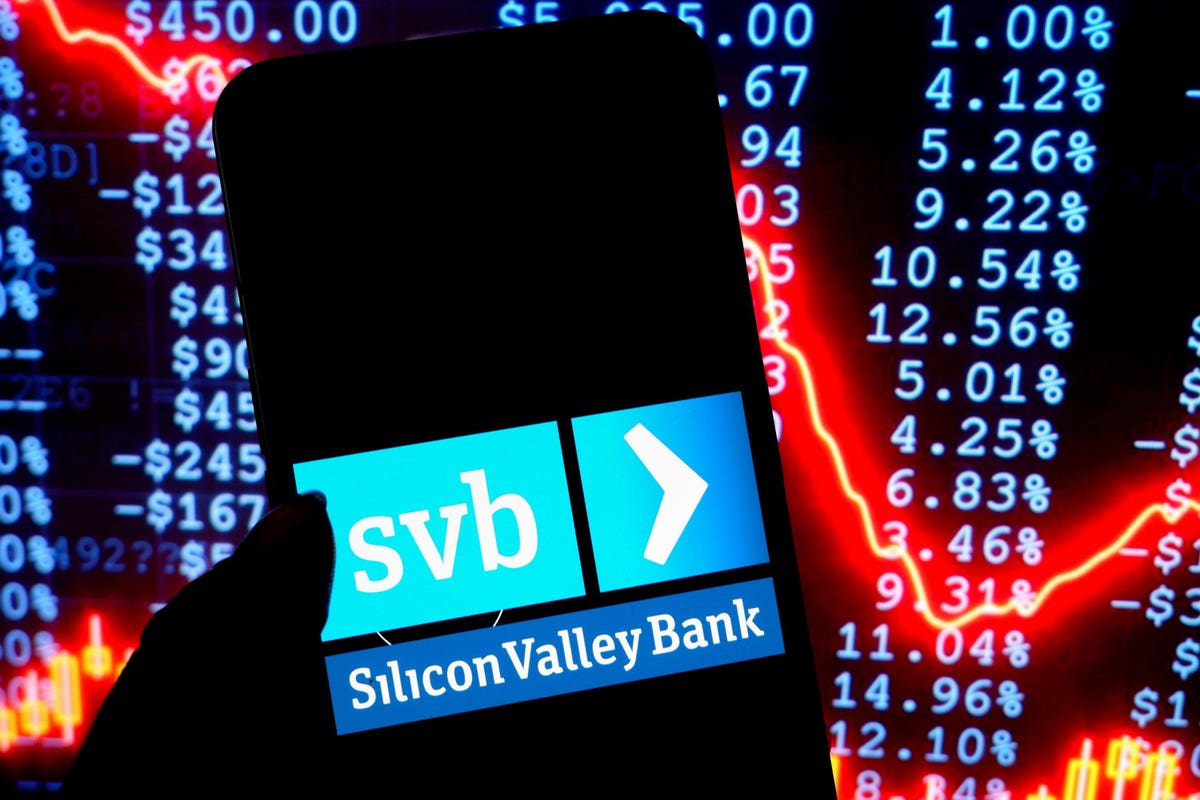For the first time in three years bears are going to try to take advantage of a bank panic. This is what investors should do.
The S&P 500 skidded last week by 4.5% after a specialty West Coast bank imploded. Bears are talking about contagion, the possibility many more financial institutions will follow. The fallout is more nuanced.
Traders should consider shorting Roku Inc. (ROKU). Let me explain.
Shares of Silicon Valley Bank (SVB
VB
SVB operates in a niche markets, servicing venture capital firms and startups, and their employees. According to the corporate website, in 2021 nearly half of the healthcare and technology firms that issued public shares were customers. Andreessen Horowitz, a VC giant, Shopify (SHOP), ZipRecuiter Inc. (ZIP), and others are featured prominently.
To be fair, SVB’s business has been under pressure for a long time. Shares peaked in November 2021 at $763 when the Federal Reserve abruptly began raising interested rates. However, it was the pace of increases that ruined the SVB business model. An unprecedented eight increases have occurred since 2021, boosting the federal funds rate from zero to 4.75%. The fed funds rate is the rate of interest charged to member banks for uncollateralized loans.
The fed funds rate, weakness last week for the S&P 500, and the implosion of SVB Bank are related.
Federal Reserve Chairman Jerome Powell shocked investors on Tuesday when he reversed a one-month old position on the state of the domestic economy. Powell in early February had said signs of disinflation were evident, and investors rejoiced. He told Capitol Hill lawmakers last week that the fed fund target rate would need to rise faster, and further than previously anticipated, and stocks collapsed.
The message to VCs and bankers was grim.
Banks operate on trust. They take in deposits, and either lend those funds to borrowers at a higher interest rate, or invest the money for safe-keeping in government and other fixed income securities. Unfortunately, as rates have risen sharply since 2021 new loan generation collapsed, and fixed income investments have generated huge paper losses.
The SVB fixed income losses, coupled last week with the prospect of even more rate hikes at the Fed sent VCs into panic, according to CNBC. VCs instructed their startup clients to remove funds. Within 48 hours, SVB was functionally insolvent.
Bears argue the problems at SVB are rampant, and they are correct, sort of. Most banks are carrying considerable unrealized losses given the unprecedented run-up in the fed funds rate. If Powell is trying to break the economy, he’s getting close to that point. However, most banks do not cater to tech startups with larger cash balances. They don’t make it easy to withdraw extremely large balances. And most importantly, deposits at most banks are not in excess of coverage by the Federal Deposit Insurance Corporation. FDIC insures balances up $250,000.
That’s going to be a big problem for Roku Inc. (ROKU).
In a document filed Friday with the Securities and Exchange Commission executives at the maker of connected TV software noted that $487 million of its cash was held at SVB, about 26% of the firm’s cash reserves. The filing notes that these funds are uninsured and may not be recovered.
The losses would be another blow for shareholders who have been decimated by a drastic reset in business fortunes. Well-heeled competitors like Amazon.com (AMZN), Alphabet (GOOGL), Apple
AAPL
NFLX
At a share price of $59.99, Roku stock trades at 2.6x sales. The Los Gats. Calif.-company is currently not profitable, a situation that will not be helped by losing nearly a half billion dollars in the SVB debacle.
The SVB situation is bad, yet investors focused on the fallout in banking may be looking at the wrong sector. SVB is a specialized, niche operation. Its uninsured customers are likely to absorb the worst of its collapse. Its customers potentially face a much worse problem.
Are you ready to take control of your financial future? Our Strategic Advantage newsletter provides the insights and guidance you need to succeed. Try it now for just $1!
Read the full article here


